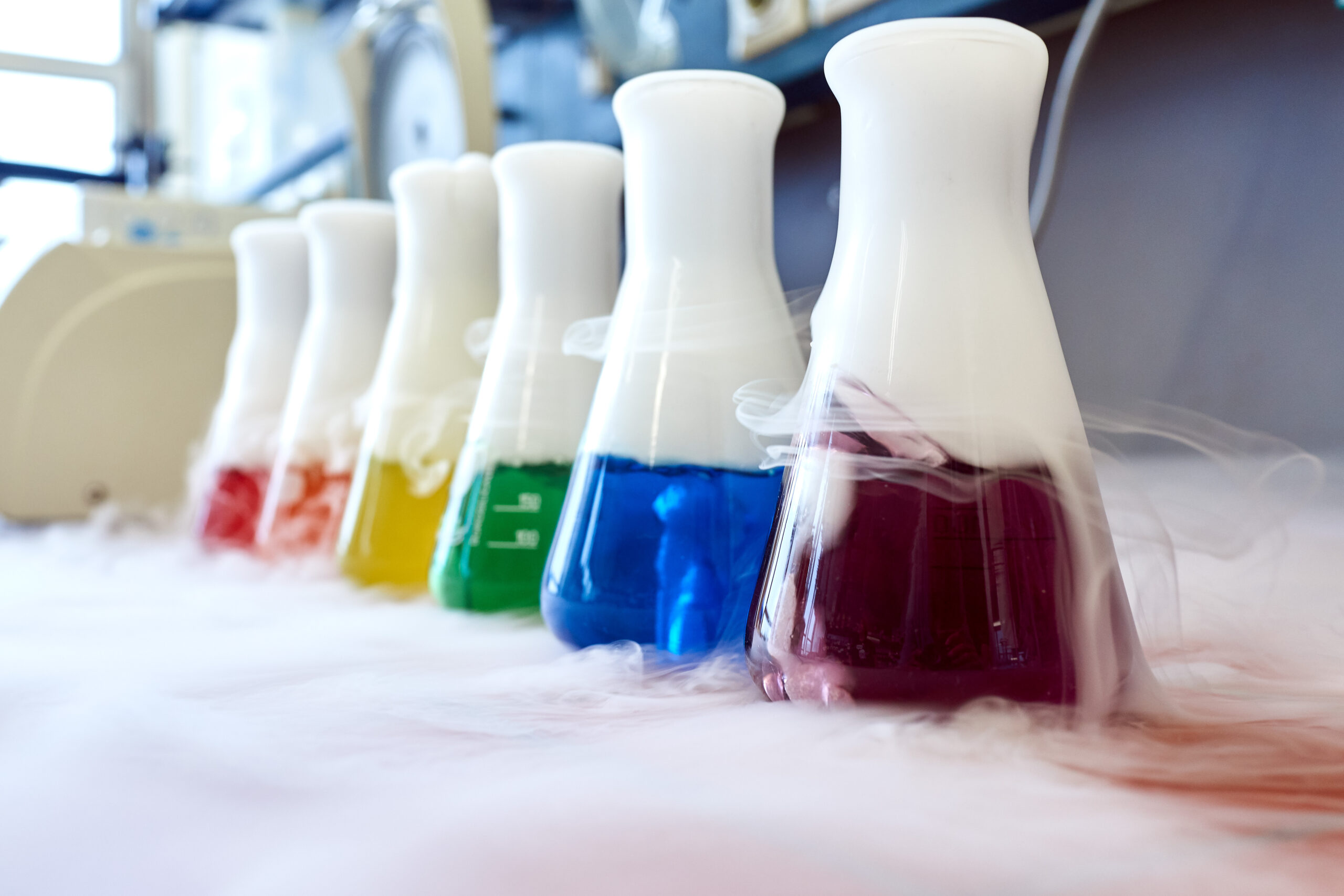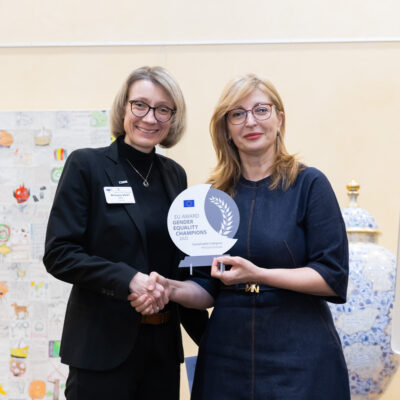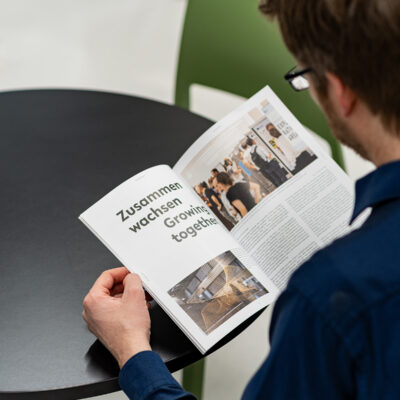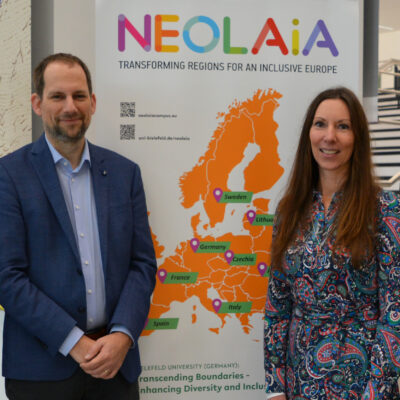The six teutolabs at Bielefeld University use ingenious experiments and easy-to-follow working methods to teach pupils new knowledge about science, technology, engineering, and mathematics (STEM). Participants in the joint project ‘LFB-Labs-digital’ are working on developing the hands-on and experimentation labs into settings for teacher training. There is a particular emphasis on using digital methods. Trainee teachers and teachers can now register for the training courses. In this interview, chemistry didactics expert and deputy network coordinator Professor Dr Stefanie Schwedler talks about how the project is impacting on work in the teutolabs and how digitalization can be used to train students to become good STEM teachers.
What’s so special about teutolabs that makes you want to work with them to optimize teacher training in the joint project ‘LFB-Labs-digital’?
Stefanie Schwedler: For decades, student labs like the teutolabs have been a driver of innovation and an explorative learning setting for STEM teaching that motivates pupils and stimulate their interest in STEM subjects. At the same time, teachers can use them to try out learning settings that are either new or hard to implement in regular lessons. The teutolab infrastructure at Bielefeld University enables a systematic collaboration allowing both networking and the exchange of experiences across many disciplines. Through the joint project LFB-Labs-digital, the labs are now included in highly transferable, digitalization-related teacher-training courses. Teutolabs offer prospective teachers a protected space in which they can try out and acquire digitalization-related teaching practices. What’s more, as learning settings, teutolabs offer a special motivational quality—we want to combine this productively with our subject-specific didactic research expertise on digitalization.
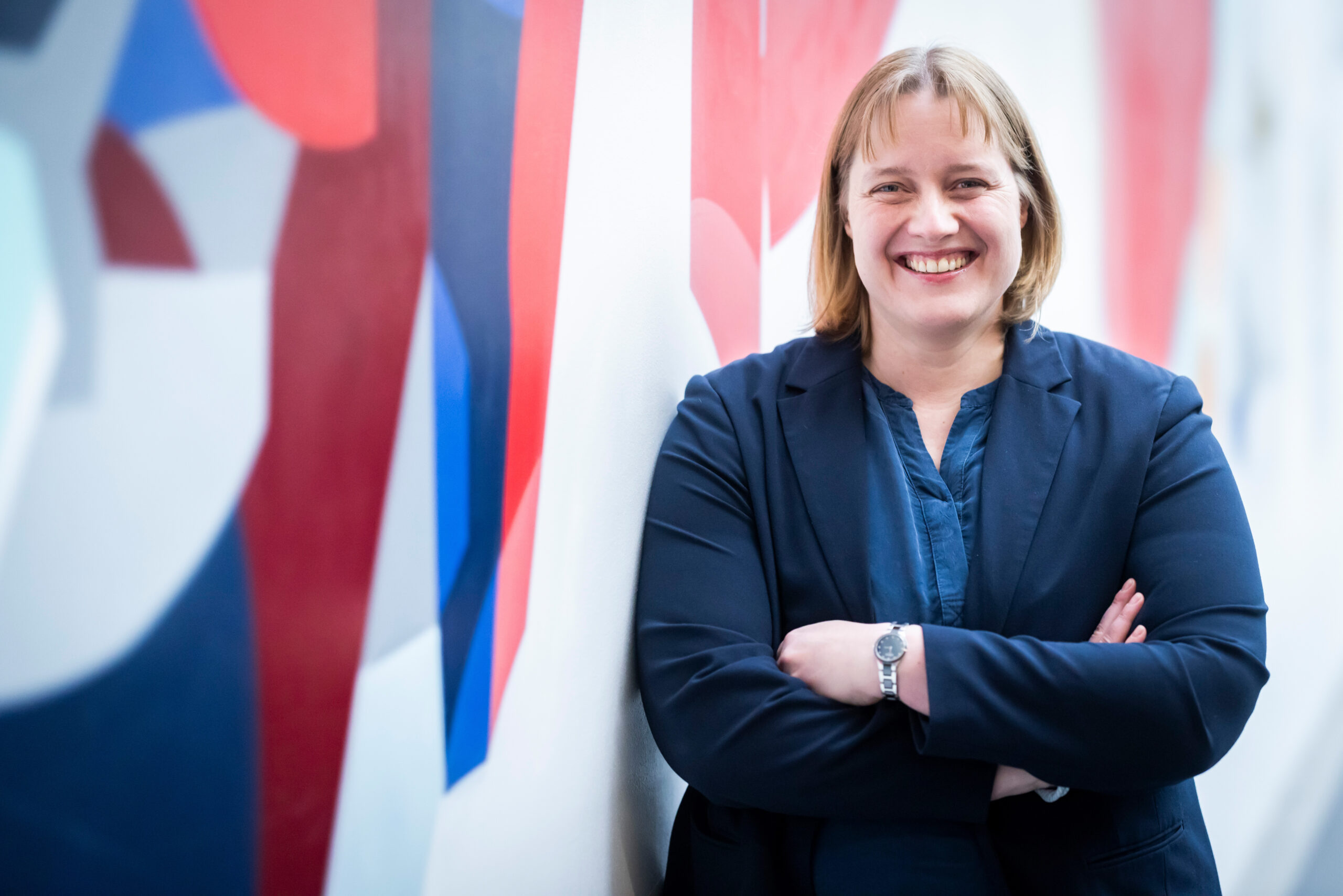
© Universität Bielefeld/ Sarah Jonek
What impact does the integration of teutolabs have on teacher training at Bielefeld University?
Stefanie Schwedler: The existing exchange between the teutolabs and subject didactics from various disciplines is being intensified through a very specific collaboration on the common topic of ‘STEM digitalization’. We are currently talking a lot about digital concepts and digital infrastructure across all teutolabs and also in the STEM disciplines. The exchange benefits both the respective teutolab and the subject didactics: as a chemistry didactician, I have expertise in learning with simulations in my subject, and I also contribute this to teacher training—for example, in the ‘ChemieDidaktikDigital’ learning workshop in the Master’s study programme. The teutolab Chemistry, in contrast, which is led by a specialist scientist, offers motivating, experimental learning settings and an exploration space for teachers. Through the LFB-Labs-digital project, my research group is now working together with teutolab Chemistry and, as part of the planned training courses, also with teachers and students on developing settings for learning with simulations. Both sides are benefitting from the exchange of expertise.
Could you give a specific example of how Bielefeld students are involved here?
Stefanie Schwedler: In the summer semester of 2024 , we offer the professional chemistry internship at teutolab-chemie for the first time. Here, our student teachers test, analyse, and revise the learning settings of the teutolab Chemistry together with pupils, and this strengthens the didactic transfer. The results include experimentation videos on the use of laboratory equipment, competence checks for the digital enrichment of backup phases, and concepts for combining teutolab visits with regular lessons.
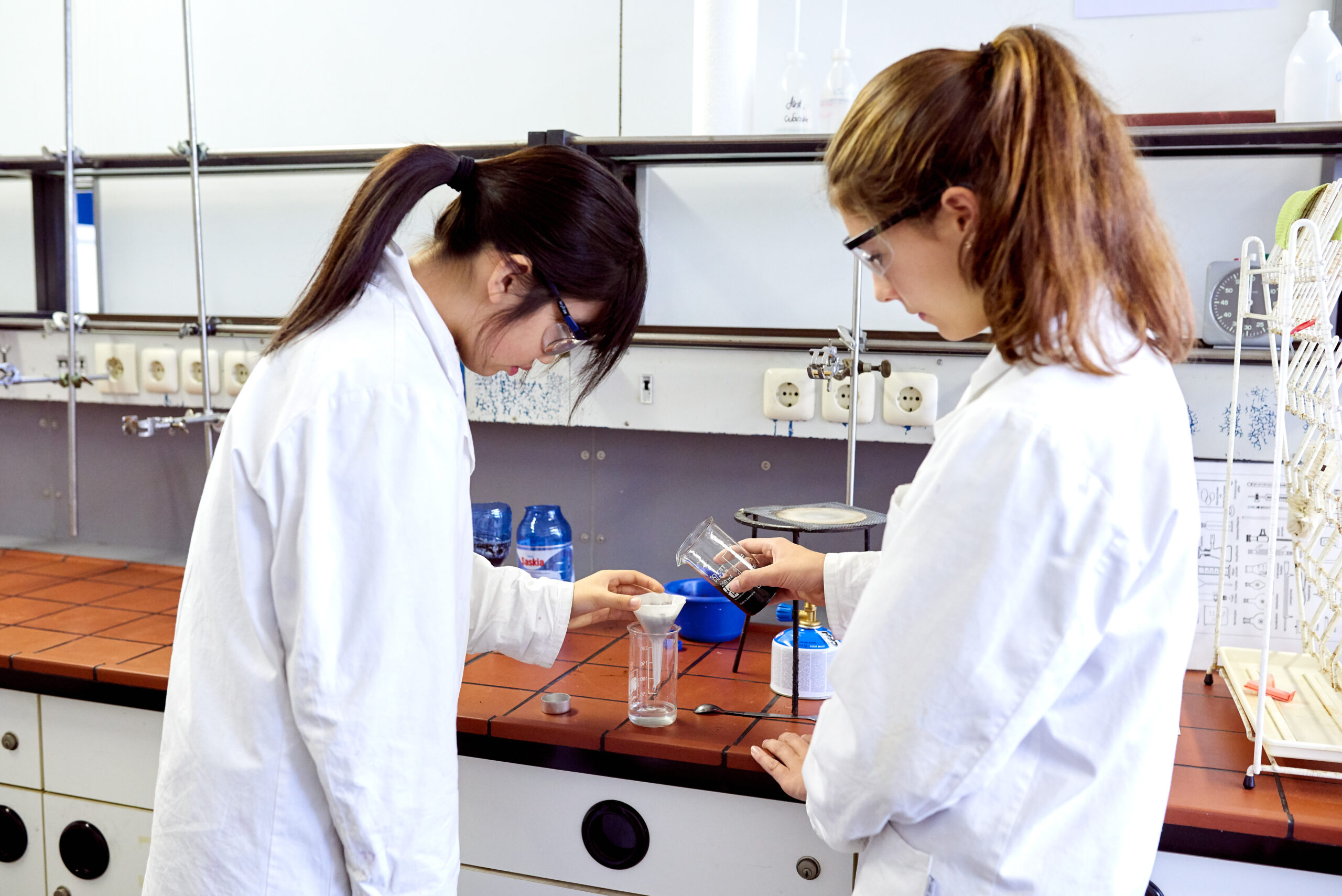
© Bielefeld University
How far does digitalization play a role in STEM education for teachers?
Stefanie Schwedler: The digital transformation of our society naturally also affects STEM teaching and therefore the skills of teachers. On the one hand, digitalization is influencing research and technology in the STEM disciplines themselves. For example, model-based computer simulations on climate change or on the course of pandemics are shaping the nature of research. On the other hand, the communication and decision-making processes in our society are also changing due to social media, fake news, and artificial intelligence such as chat GPT. Teachers need to be familiar with this as well if they are to educate students to become responsible, democratic citizens in our technologized society. Our goal is to make STEM teachers fit for digitally enriched learning.
So, future teachers will face new challenges?
Stefanie Schwedler: Last but not least, digitalization opens up a huge field of different learning tools. However, alongside the considerable opportunities, there are generally also associated risks. Such tools will only have a significant positive influence on pupils’ learning if they are used correctly. For example, the didactic expertise of the specific teacher determines whether molecular dynamics simulations are used as an efficient learning tool in chemistry lessons or whether they are more of a technically complex waste of time. This is a huge challenge for teachers. In addition to knowledge about chemistry and education, teachers must now also have technical and digitalization-related knowledge and combine these different facets in practical lessons as learning-effective teaching skills. This is also a major challenge for us as teacher-training faculties.
How will the teacher-training programmes developed in the project be put into in practice at teutolabs?
Stefanie Schwedler: It is important to us that the programmes are not carried out in one-shot lecture-style formats. Hence, they are not short input lectures—these have not proven to be sustainable, and they do little to support transfer into school practice. Instead, our aim is to enable teachers to try out new techniques and teaching practices within their training courses and their teaching practice—that is, in the teutolabs or in their own lessons. In chemistry, for example, the training programme comprises four phases: in Phase 1, the teachers work on the underlying principles of learning with simulations. In the afternoon, in Phase 2, teachers, trainers, and students work in multi-professional project teams to find out how existing simulations from the web can be integrated into experimental learning settings at the teutolab. In Phase 3, each participating teacher has the opportunity to visit teutolab Chemistry with their own school class and observe how far the respective learning setting proves to be a success in practice. In Phase 4, we collate the experiences of all the teachers, revise the approaches, and reflect together on how teachers can implement learning with simulations in their own lessons.
